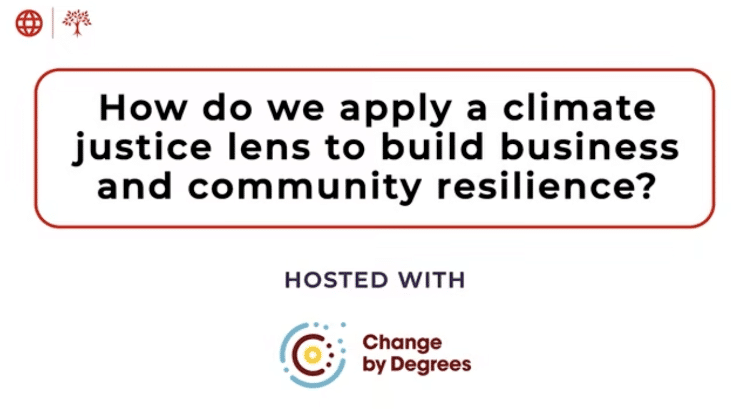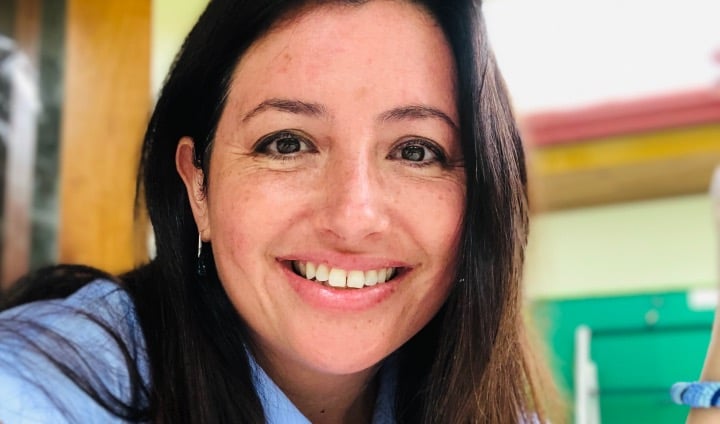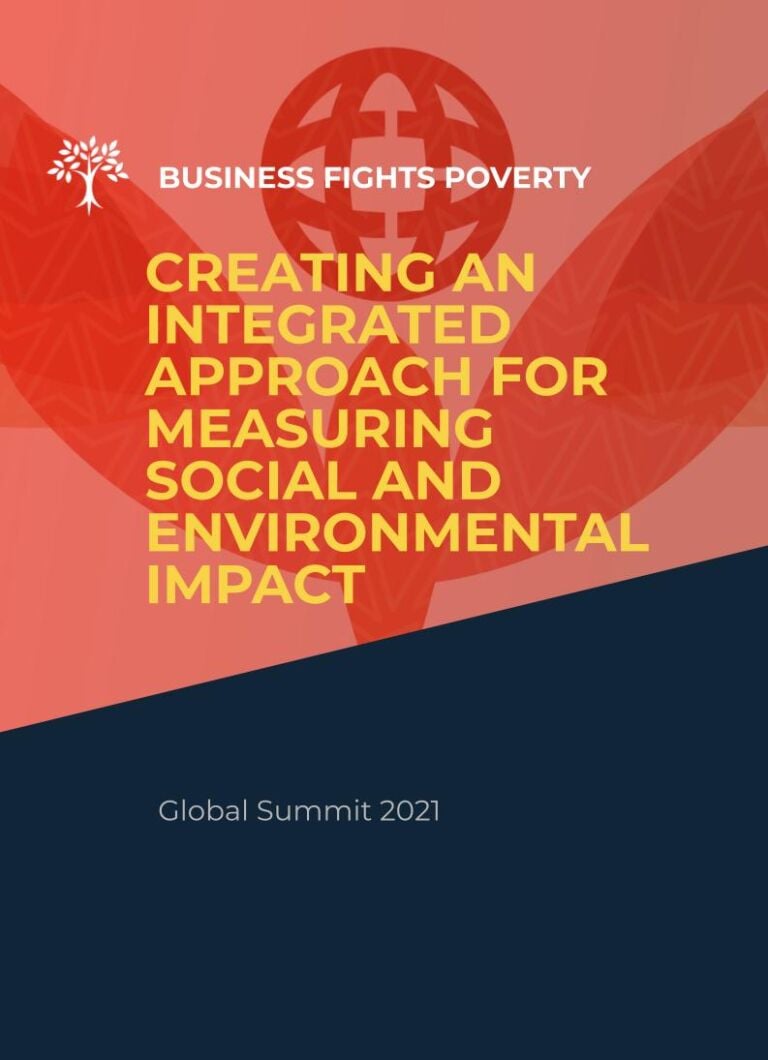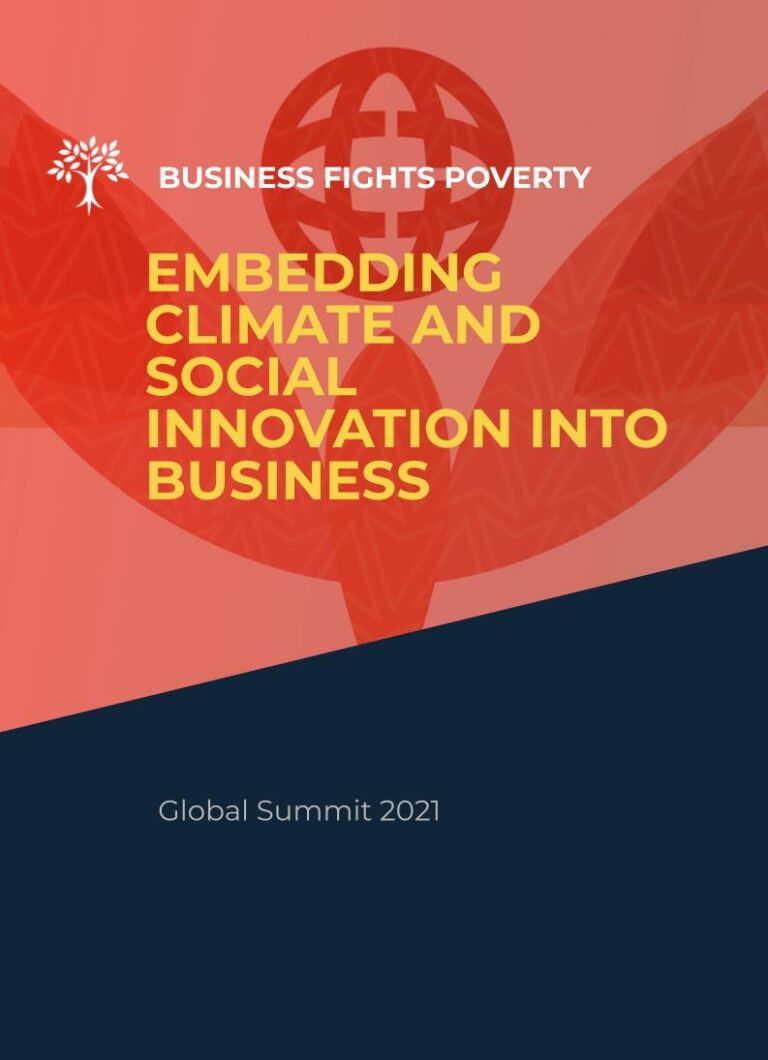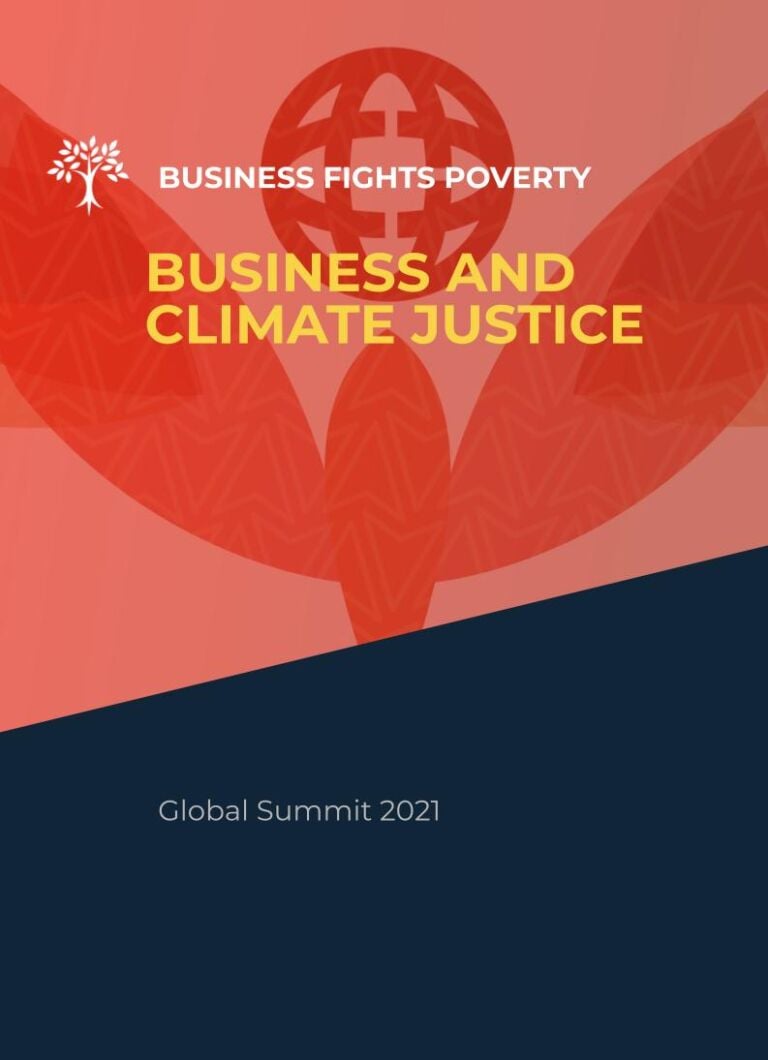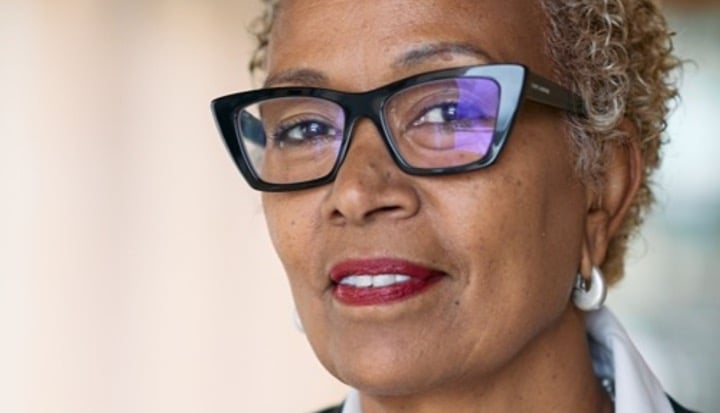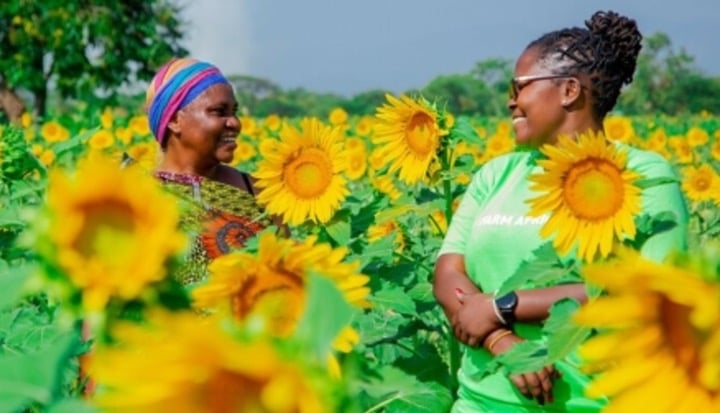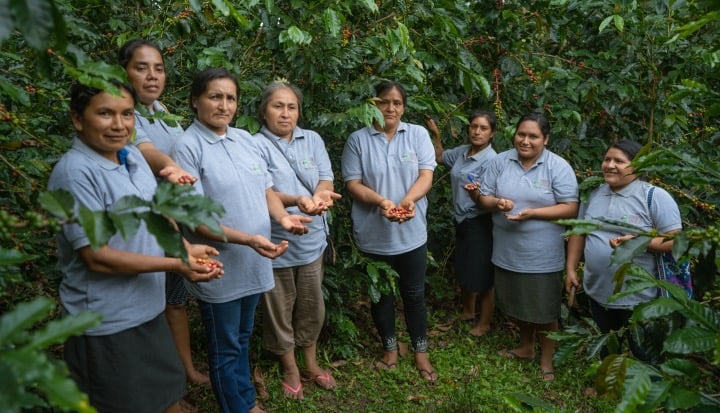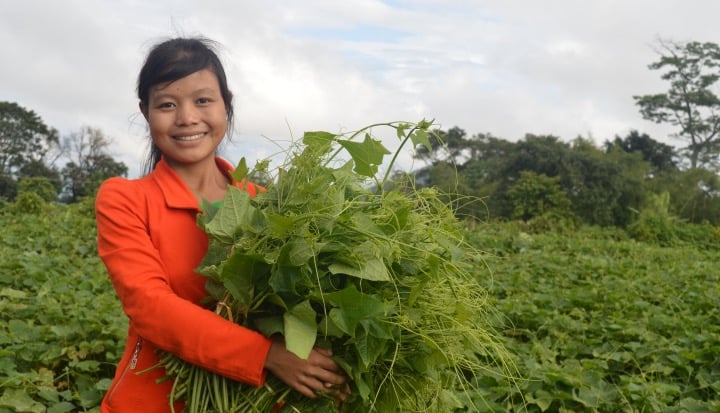Learning zone
Climate Justice
Resource Kits
Explore our issue-based resource kits with downloadable, co-created learning resources. Everything you need to inform your organisation’s social impact strategy and stay ahead of emerging social impact trends.
How Can Businesses Put People at the Heart of Climate Action?
This Resource Kit, supported by Pearson and developed with Change by Degrees, includes practical tools for putting people at the heart of climate action. It applies principles of climate justice to actions companies can take across their core business, philanthropy and policy advocacy.
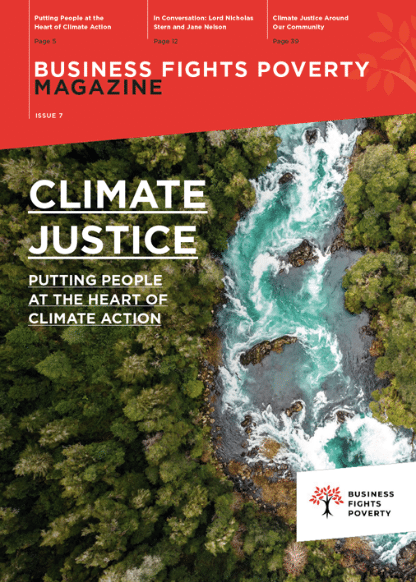
Business case studies and leading edge thinking. An explanation in greater depth as to why putting people at the heart of climate action should now be a business priority: Business Fights Poverty Magazine
Learn from a panel of experts in this live webinar: How do we apply a climate justice lens to build business and community resilience?
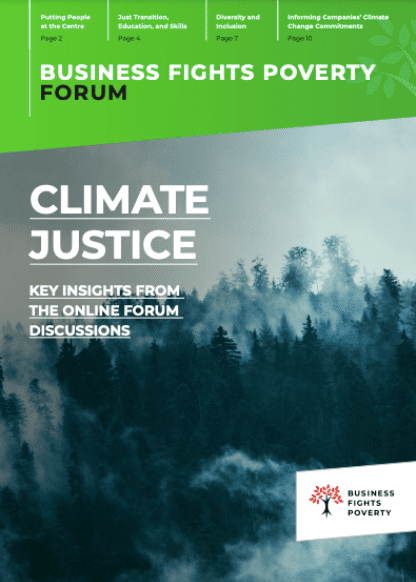
Business practitioner answers to human centred climate action on people’s rights (see p.3-4) and vulnerabilities (see p.8-10): Climate Justice Online Forum Discussions
How can we integrate gender into net zero planning in supply chains?
Supported by
This Resource Kit looks at how businesses can integrate gender equality with climate change initiatives in their supply chains and how this can be critical to achieving net-zero emissions by 2050. Companies can integrate gender through supply chain mapping, incentivising suppliers, and investing in gender-responsive projects to enhance outcomes.
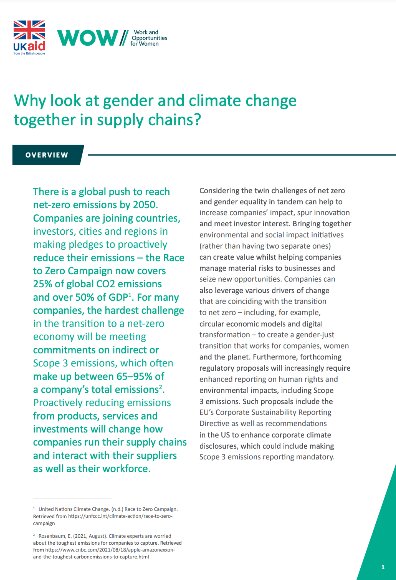
Gender, Climate and Supply Chains
A brief overview of the intersection of gender equality and climate action within supply chains, with insights on how businesses can take action.

Women and the Net Zero Economy
A toolkit on how companies can transition to a net-zero economy while economically empowering vulnerable women working in global value chains.
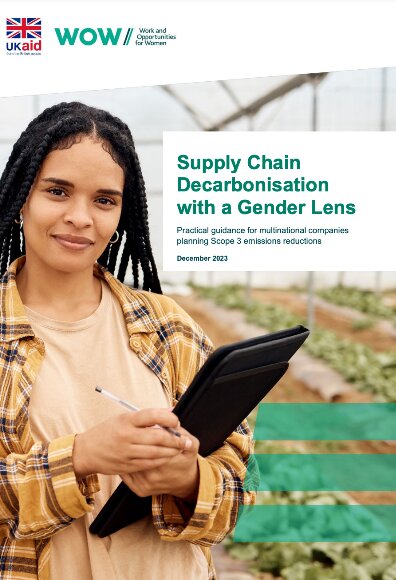
Decarbonisation with a Gender Lens
Guidance for companies on gender considerations they need to keep in mind when planning Scope 3 emissions reductions across their supply chain.
Applying a Gender Lens to Net-Zero
A workshop panel discussion sharing the latest thinking and examples on how applying a gender lens can help drive progress towards net-zero.
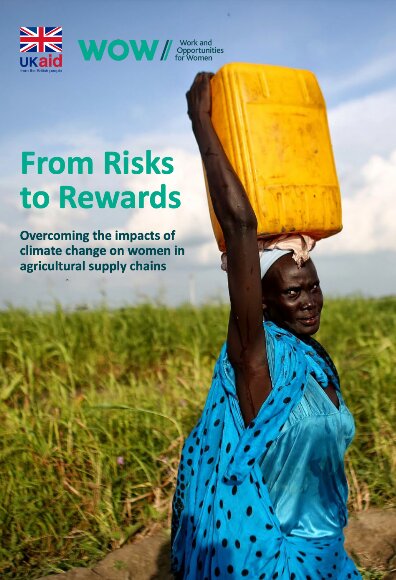
Climate and Women in Agriculture
A report looking at the impacts of climate change on women in agricultural supply chains, responses and recommendations for business action.

Gender and Climate Change Resources
A list of other resources for integrating gender and climate action in supply chains, including frameworks, case studies, videos and podcasts.
More Climate Resources
Social Impact Pioneer Leonor Fernández, Director of Women in Agriculture Initiative (WAI) at Root Capital talks investing in women farmers.
Our Online Written Discussion on “Creating an Integral Approach for Measuring Social and Environmental Impact,” delved into the requirements for addressing the climate crisis effectively, emphasising the necessity of integrating social and environmental agendas. The discussion highlighted how cross-sector partnerships can be potent catalysts for sustainable change, bridging diverse fields and stakeholders to create more comprehensive and effective strategies. Participants from various sectors including business, academia, and non-profits, shared insights on the synergies between social impact and environmental sustainability, underlining the critical role of an integrated approach in advancing global climate goals. Hosted during our Global Summit 2021.
Our Online Written Discussion “Enhancing the Livelihoods of ‘Hidden Women’ in Global Smallholder Value Chains,” focused on how companies and partnerships can significantly improve the lives of women smallholder farmers. Participants stressed the importance of initiatives that actively listen to and involve local communities. The discussion covered issues such as gender inequality, discriminatory social norms, and the benefits of employing bottom-up approaches in cross-sector collaborations. Participants highlighted the potential advantages of well-designed partnerships that are responsive to the specific needs and challenges faced by women in agriculture. Hosted with Oxfam and Unilever during our Global Summit 2021.
Our Online Written Discussion covered “Embedding Climate and Social Innovation into Business.” Panelists explored the integral connection between a company’s purpose and its capacity for social innovation. The forum discussed the challenges businesses encounter when incorporating social innovation into their core strategies and emphasised the critical role of partnerships in uniting social and climate innovations. Hosted during our Global Summit 2021.
Our webinar explored “Business and Climate Justice”. Participants discussed what a global approach to climate justice entails, exploring the connections between climate-related disasters and poverty. The webinar also outlined strategies for a just transition that includes everyone in sustainability efforts, aiming to create a more inclusive and comprehensive approach to tackling climate change. Hosted during our Global Summit 2021.
Social Impact Pioneer, Desta Lakew joins us to share her insights on Africa’s health, climate change and why sick care won’t work.
Amid rising global hunger due to pandemic, conflict, and climate change, SDG2: Zero Hunger remains a paramount goal. Learn how Farm Africa is enhancing smallholder farmers’ resilience in Eastern Africa through climate-smart agriculture, holistic programs, and empowering community-led initiatives, driving forward the critical mission to eradicate hunger by 2030.
The contribution that women make to the coffee value chain often goes underappreciated and undercompensated. However, TechnoServe Global Gender Director Cristina Manfre argues that by shining a spotlight on the roles women play across the value chain, we can help them to improve their incomes and economic empowerment.
Gender equality is the cornerstone of sustainable business growth. This article explores how MEDA’s Gender Equality Mainstreaming (GEM) Framework is advancing gender equality, in addition to business growth and impact. After applying GEM to 40 businesses and investment funds globally, MEDA found that mainstreaming gender throughout business operations was linked with greater commercial success.


